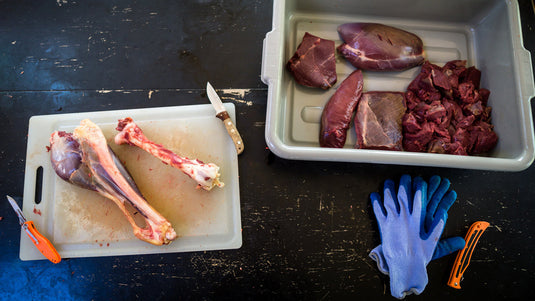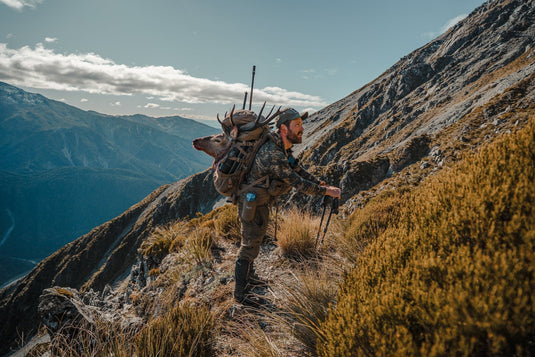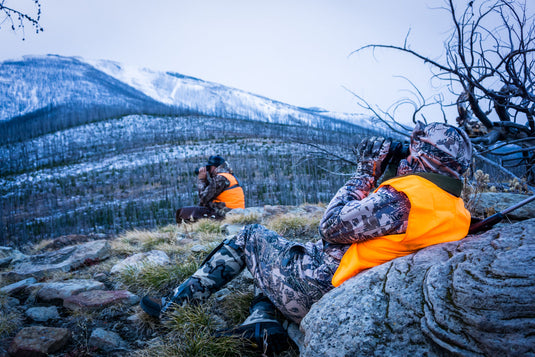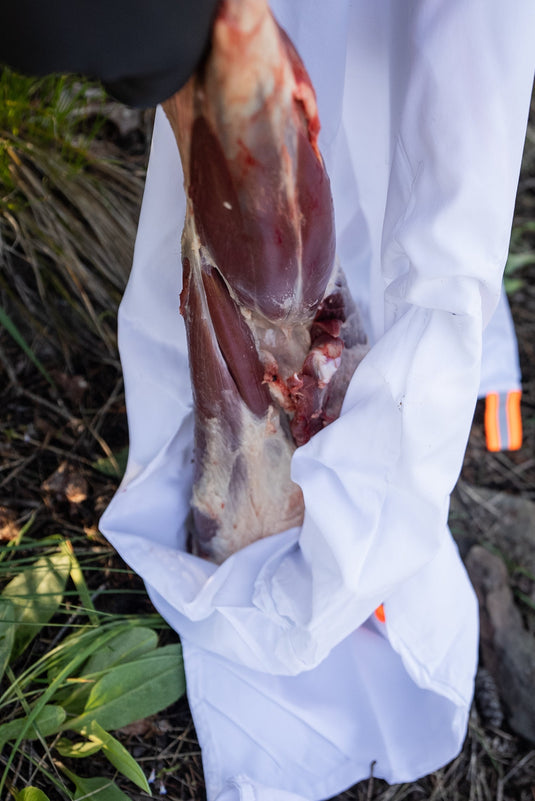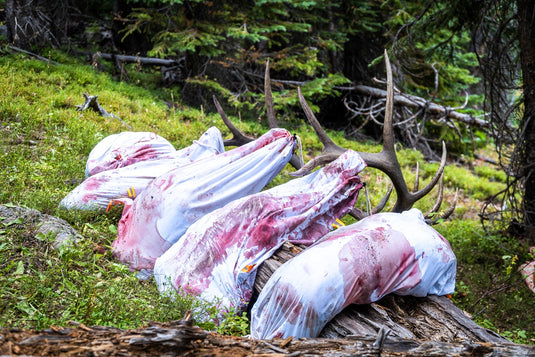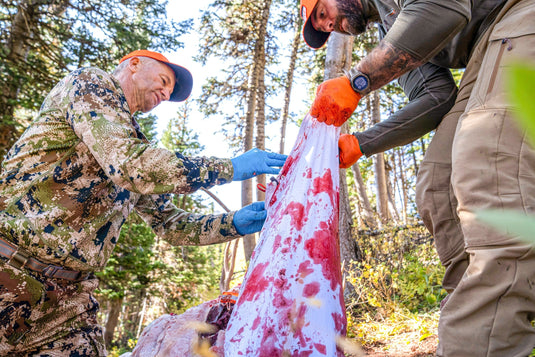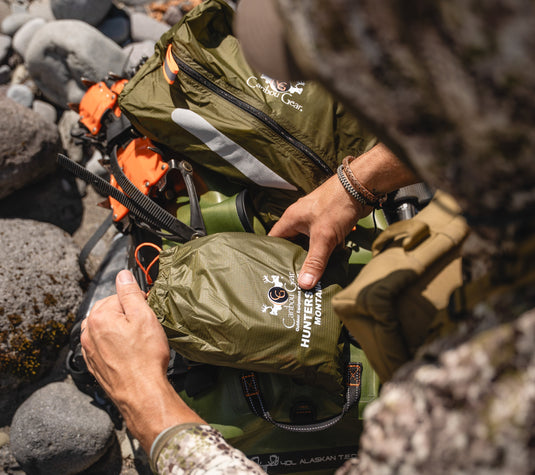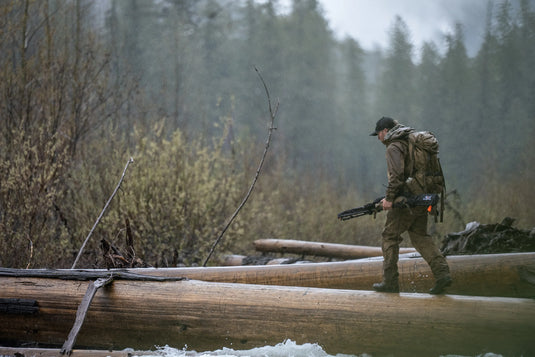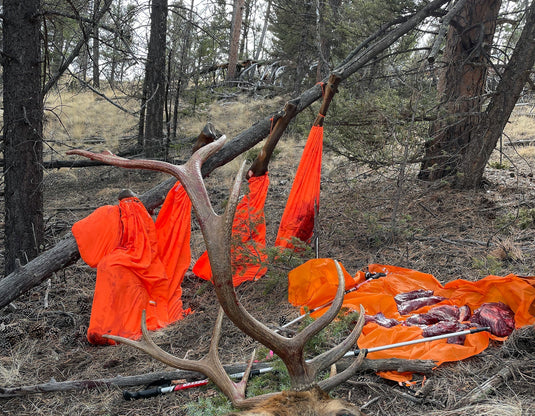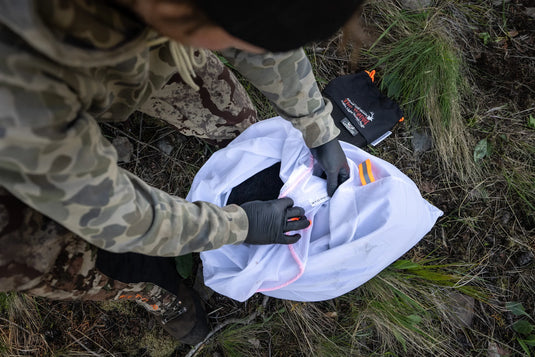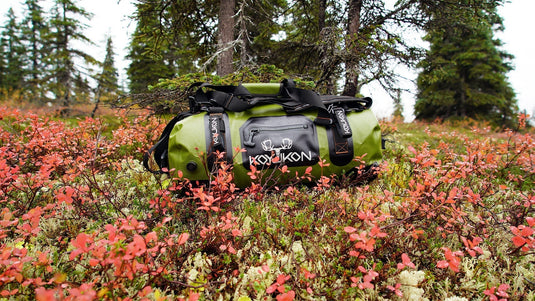When the Tag Goes Unfilled: Lessons from Colorado’s Second Season
The Hunt That Tests You
There’s something about Colorado’s second rifle season that humbles even the most prepared hunter. The mountains look different this time of year — not green and alive like in early archery, nor buried in snow like the late hunts, but caught somewhere in between. Yellow aspens give way to empty branches, frost paints the meadows, and elk tracks tell stories older than any of us.
This year, our crew hit the trailheads like many others — tags in our pockets, high hopes, and that quiet conviction that maybe, just maybe, this would be the season we punched the tag. Public land, open sky, long miles. No shortcuts.
We didn’t fill the tag.
But we filled something else.
The Public Land Reality
Public land hunting in Colorado is a paradox of abundance and challenge. There’s more access than almost anywhere in the West, yet the animals move like ghosts. Every ridge seems to promise sign, every draw looks “elky,” but it takes patience — and humility — to realize that sometimes the elk win.

We glassed for hours each morning as the sun crept over the ridges. The chill in the air made every breath visible, our rifles resting on our packs, eyes searching for that one flicker of tan against the timber. Midday hikes revealed only old rubs and frozen wallows. Evenings ended with quiet silhouettes of mule deer grazing on distant hillsides, reminding us that we weren’t alone — just out-timed.
Failure, if you can call it that, feels different in wild country. It isn’t defeat; it’s perspective.
The Mountain Teaches
The mountain doesn’t care about your brand of boots, your rifle caliber, or your gear list. What it does care about is how you show up — your patience, your ethics, and your respect for the land.
The second season in Colorado is a test of endurance more than anything:
- Mornings are bitter cold.
- Afternoons grow deceptively warm.
- Evenings vanish before you’re ready.
Each day feels shorter, yet somehow more demanding. You hike farther, think deeper, and begin to understand that hunting isn’t always about harvest — it’s about alignment. It’s aligning yourself with a rhythm that existed long before us, and will continue long after.
We didn’t notch a tag, but we notched memories that sharpened our discipline: how to glass longer, how to stay quieter, how to accept the silence between bugles.
Camp Life: Where Stories Outweigh Success
At camp, we built small fires, brewed coffee thick enough to stand a spoon in, and watched steam rise from boiling water into the cold air. Basecamp becomes a classroom. It’s where you learn that hunting partners matter as much as elk sightings, and that shared hardship forges better stories than shared victories.
When the day’s hiking ended and the packs hit the ground, we’d talk strategy under the stars. Some nights it was laughter — recalling missed opportunities, fogged optics, or the mule deer that materialized out of nowhere at 40 yards. Other nights it was silence — the kind where the fire crackles and everyone stares into the flames, knowing tomorrow brings another chance.
Those are the moments that shape hunters more than any harvest photo ever could.
Gear That Keeps You in the Fight
Even on hunts where the tags go unfilled, the right gear defines the experience. It’s the barrier between comfort and misery, between staying on the mountain or heading home early.
Caribou Gear® Rifle Shield™

Snow, dust, and condensation are the silent killers of rifle reliability. The Rifle Shield™ Cover kept our actions clean and optics dry through days of variable weather — from frosty mornings to dusty afternoon hikes. When you’re miles from the truck, dependability matters.
Hunter’s Tarp®
We used the Hunter’s Tarp® for everything: sitting glassing knobs, covering gear during light snow, and prepping meals on clean ground. It’s simple, rugged, and ready — the way all good hunting gear should be.
Koyukon® Duffels & Dry Bags
Public land hunting is as much about logistics as it is about pursuit. Keeping gear dry during unpredictable weather was crucial. Koyukon® Duffels gave us that peace of mind.
Caribou Gear® Game Bags
Even though we didn’t get to fill them this year, we carried our Game Bags with pride. They’re more than bags — they’re a promise. A commitment to ethics, cleanliness, and respect for the animal. Because when success does come, being ready defines your professionalism as a hunter.
The Philosophy of the Unfilled Tag
It’s easy to measure a hunt by the weight in your pack. But some of the best hunts — the ones that stay with you — are measured differently.
They’re measured by the sunrise that painted the ridges orange and gold. By the bull elk bugle you heard in the dark timber that froze you in your tracks. By the knowledge that you earned every mile, even if no tag was punched.
Every unfilled tag is an invitation — an invitation to reflect, refine, and return stronger.
Public Land: The Great Equalizer

There’s something uniquely American about public land. It belongs to all of us — every hunter, hiker, and dreamer who looks toward the mountains and feels that magnetic pull. Hunting public land demands humility, grit, and patience. It’s where the odds are never guaranteed, but the reward is always earned.
You compete not against other hunters, but against your own limits — fatigue, doubt, and time. You learn that fair chase isn’t about easy outcomes; it’s about honest effort.
And in that effort lies something sacred. Something worth protecting, year after year.
What We Take Away
We left Colorado without meat in the freezer, but with lessons worth far more:
- That failure sharpens focus.
- That partnership outlasts frustration.
- That gratitude transforms disappointment into growth.
Hunting isn’t a transaction — it’s a relationship. A relationship with the land, the weather, the wildlife, and the people who share the fire beside you.
When the next season comes — and it will — we’ll be back. Maybe we’ll fill the tag next time. Maybe we won’t. But we’ll walk the same ridges, breathe that same mountain air, and feel the same quiet satisfaction of simply being part of it all.
Final Thoughts: Why We Hunt
We hunt not to kill — but to belong. To measure ourselves against the wilderness and remember what simplicity feels like. We hunt to preserve tradition, to feed our families, to teach our children that food has meaning and that wild places deserve our respect.
So yes, we came home empty-handed this season. But we came home full-hearted.
And in the end, that’s the kind of success no tag or trophy could ever replace.



